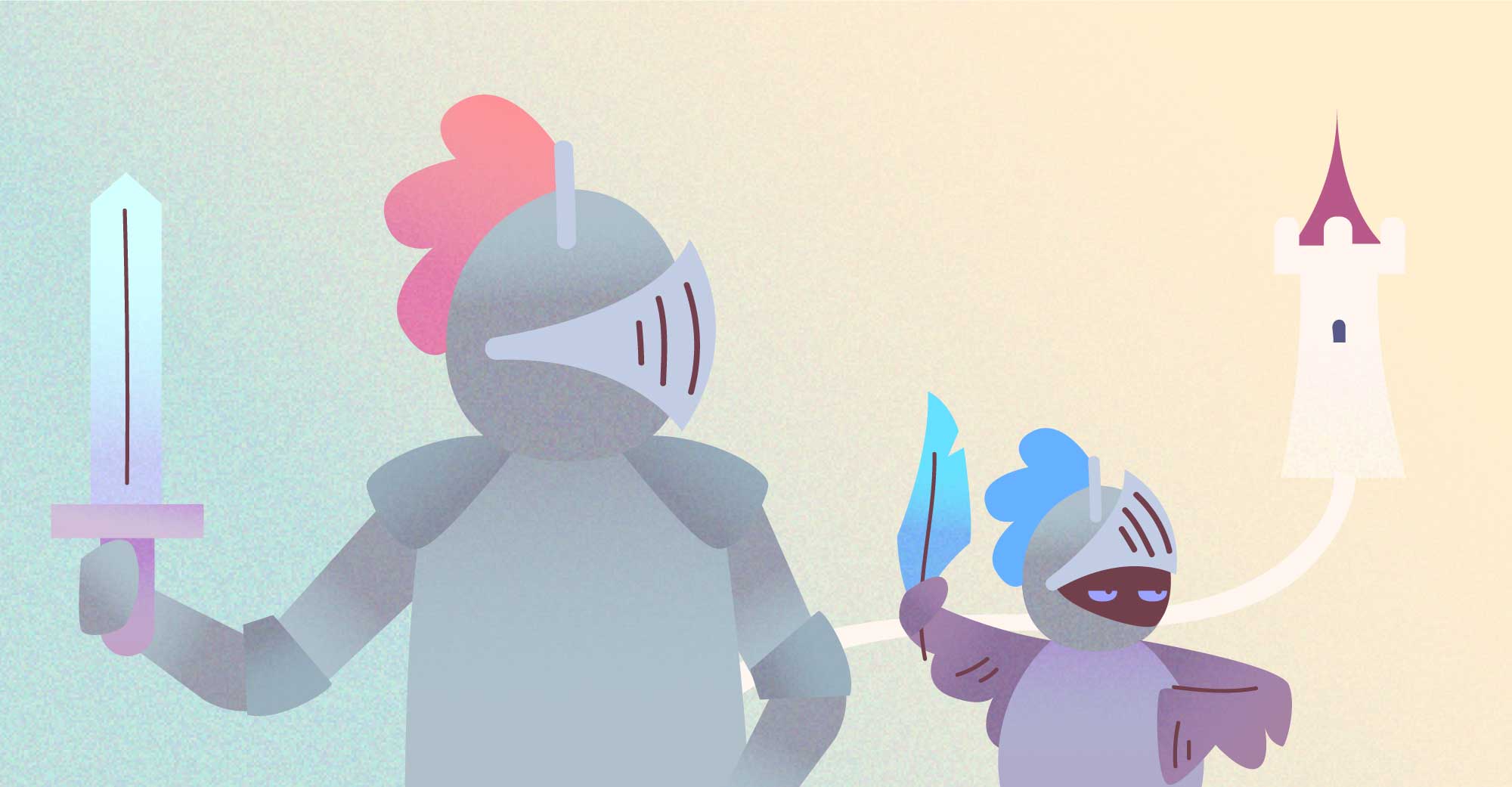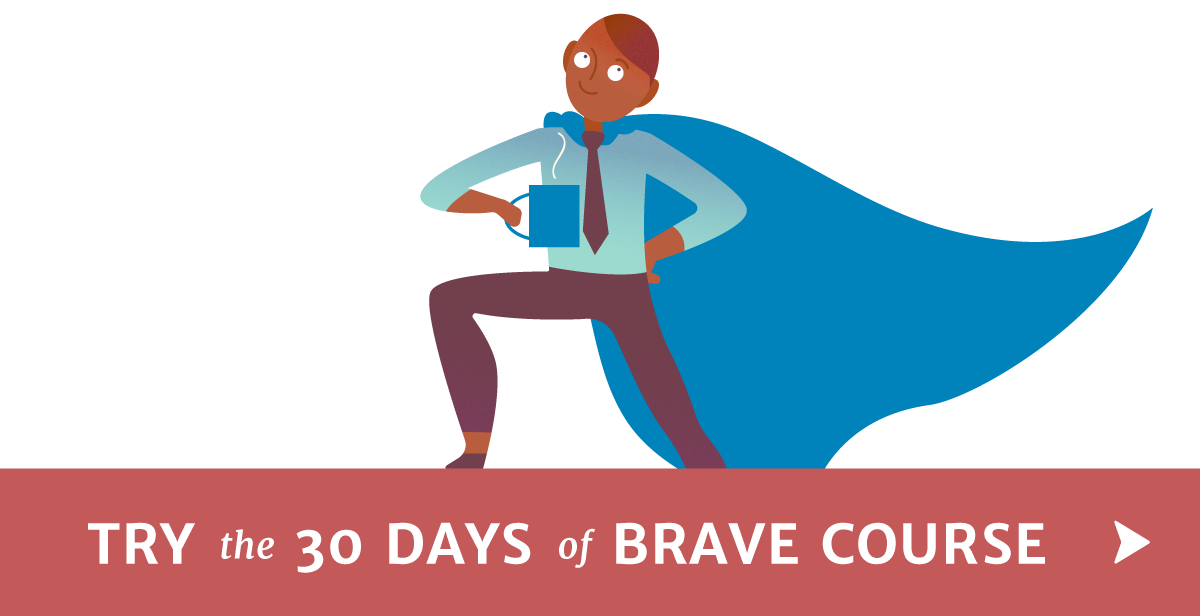Since early childhood, we are presented with stories about real or imaginary heroes that are hinting everyone should aspire toward living a heroic life. Everyone should acquire the virtues of bravery and selflessness for the world to be a better place.
Throughout life, we move away from that childish fantasy of us saving the world when we grow up. When we hear about individuals doing extraordinary deeds for the benefit of humanity, we tend to regard them as exceptional, heroic characters that common people are never destined to be. Still, they give us a glimpse of hope, make us feel a bit safer and boost the faith in our race.
The noble, positive feelings connected to heroism are probably the reason why heroes appear so frequently in art, literature and scientific research from the time these disciplines were formed. Today humanistic sciences strongly suggest that not only everybody needs a hero, but everybody can become one (1).
Is it true that a hero lies in you? Save your answer for after you have read 6 reasons why we think you are destined for heroic deeds.
1. Heroism is your heritage
Swiss psychiatrist and psychoanalyst Carl Gustav Jung proposed a theory that our cognition, perception, and behavior aren’t only influenced by our nature and nurture but also the whole human evolutionary history plays a role in how we think, feel and behave (2).
He believed that there is a part of our psyche, “the collective unconscious”, that contains archetypes, or general outlines of collective experience that we are drawn to. He wrote about archetypes of hero, demon, magic, and power, among others. Some of those hold the general idea of how heroes look like and what they do. These archetypes serve as identification figures and when certain situations activate them, they guide our activity towards the right deed.
2. Your brain is hardwired for heroism
A question whether there is a specific disposition for heroism, or it is just another thing that we learn to do in order to get gratification, is still up for debate. Undoubtfully our brain craves for the activity in zones associated with processing pleasure and rewards. Research has shown that these very zones respond to generous behavior, which has a lot in common with heroic behavior (3).
Also, scientists have found that newborns have a preference for people who are moral, similarly as they do for their parents’ faces. If we look at the physiological level, scientists believe that higher levels of oxytocin, or „love hormone“ increases the chance of people acting heroically, since it is shown that oxytocin is related to altruistic behavior. Whatever the definitive reason may be, science is supportive of the notion that our brain likes us doing heroic deeds and that they make us feel good.
3. You can learn to be a hero
According to science journalist Elizabeth Svoboda and her research presented in a book What Makes a Hero? The Surprising Science of Selflessness, we can actually train our brain to be prepared to put ourselves on the line even in situations where everybody else acts as silent bystanders. She simply defines heroism as „doing something where you're really taking risks to help somebody else, and you're not expecting to gain from that risk to yourself“.

Her book is based on the theory of a psychologist from Stanford University, Philip Zimbardo (best known for his Stanford Prison Experiment), who has been studying the psychology of evil for 35 years. Now, he is one of the creators of The Heroic Imagination Project (HIP) and says that there is heroic imagination as well as hostile imagination like there is good and evil
The lines between them are quite blurred, so it is hard to distinguish why are some people more inclined to rely on one or the other in the same situation. That also means that people can incidentally or consciously change their way of thinking and acting because we are all born with the capacity for both, says Zimbardo. In fact, just a few people act extremely evil or heroic, the majority is somewhere in between, not inherently motivated to act, inclined to both sides depending on circumstances. The HIP encourages research and education to promote heroic imagination and to
“empower ordinary people to engage in extraordinary acts of heroism“.
Research from this project shows that there are some common characteristics among those who performed heroic acts. Most of these people were more educated, volunteered more and had survived personal trauma. That probably means that their awareness and understanding of situations is higher. Based on this insight, researchers put together a programme for training potential heroes, with steps and courses to complete.
4. You can choose to act heroically
 As already mentioned, people are not inherently heroes, we are just predisposed to act in various ways, including heroically. Being trained and willing to take new actions does not mean that we will become a different, exceptional person. It is the act itself that is exceptional, so we need to really make a decision that we are prepared to step in for something or someone and act with bravery.
As already mentioned, people are not inherently heroes, we are just predisposed to act in various ways, including heroically. Being trained and willing to take new actions does not mean that we will become a different, exceptional person. It is the act itself that is exceptional, so we need to really make a decision that we are prepared to step in for something or someone and act with bravery.
For example, the hero training programme is not focused only on developing skills needed to act. It also highlights the importance of pledging ourselves to take the action when encountered with demanding situations.
A phenomenon called a bystander effect illustrates how significant is to act. In short, the more bystanders are present, the less likely that someone is going to intervene in risky situations. Apart from noticing and recognizing a situation as an emergency, we have to take a responsibility to help and do not let the opportunity to be a hero pass by.
5. Our inner heroes might be shy
 Sometimes the only thing that is stopping us from helping is simply the fear that the others will disapprove of our actions, or that they will ridicule us if we fail. That is when we need moral courage.
Sometimes the only thing that is stopping us from helping is simply the fear that the others will disapprove of our actions, or that they will ridicule us if we fail. That is when we need moral courage.
It is not necessary that there is a physically dangerous situation for someone to act heroically. To speak up for someone, you need to express your values and fight the prejudice of others. It requires a certain level of self-confidence, which is something that we can work on, so by trying to become a better version of ourselves, we actually train to be heroes (4).
6. Being a hero is simple
You may have already become a hero by doing something that felt completely natural to you (5). Zimbardo’s research shows that women report doing less heroic deeds, probably because they do not recognize some acts of selfless caregiving, as heroic deeds because they “feel natural” to them. Not only women but all caregivers and nurturers sacrifice themselves and they usually do not acknowledge their behavior as heroic. They simply act instinctively to fulfill someone’s basic human needs for survival, safety, growth, and happiness.
Whether you choose to believe scientific evidence, philosophy theories or pop music hits, or this article- it all boils down to one thing. You are destined to be a hero, as you might have imagined when you were a child.
You have your heroic destiny in your hands.
How will you manifest it today?

